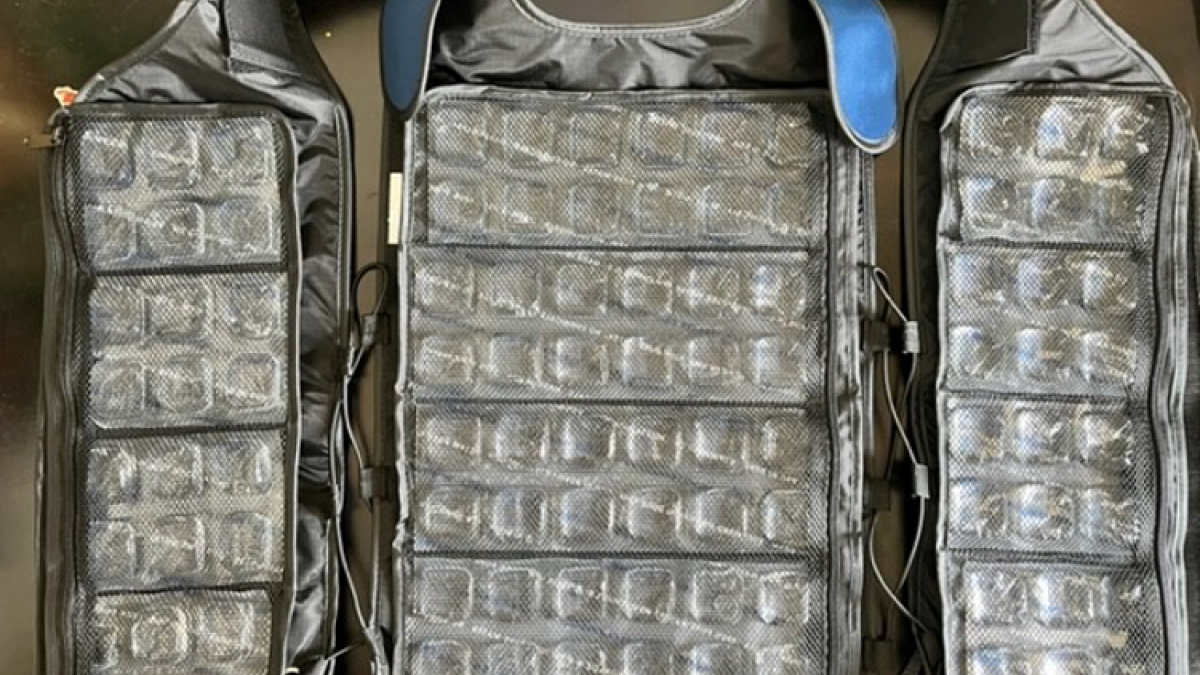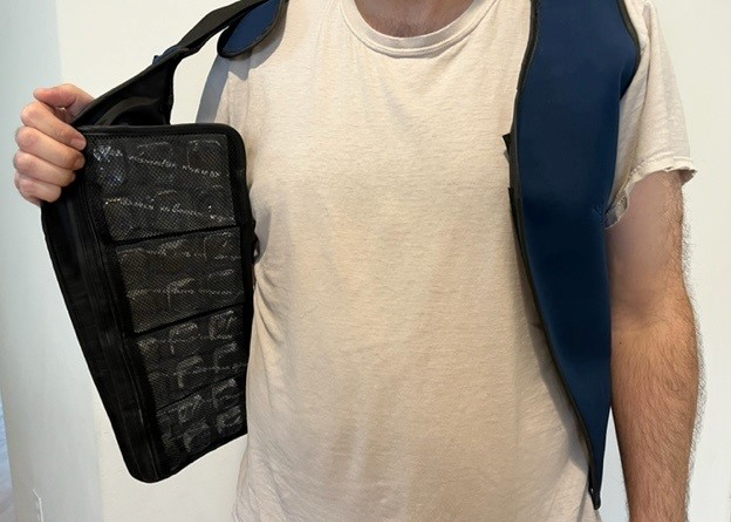
Photo by PNASH
 Take note
Take note
Ice vests, with reusable ice packs, are the best type for wearing under PPE in a greenhouse.
 Idea...
Idea...
A greenhouse supervisor saw an advertisement for the ice vest in a trade catalog. As their greenhouse requires full PPE regardless of the product label, he provided ice vests to keep the applicators cooler when spraying.
 Alert
Alert
Provide heat training following local OSHA Heat Rules.
 Setup & use
Setup & use
- Train new employees on when to use the ice vest and how to properly wear it.
- Check vests for tears and damage before each use.
- Put ice packs in all pockets of the ice vest.
- Wear ice vests under PPE.
- Decontaminate ice vests and ice packs after use.
- Store clean vests in a clean dry location and ice packs in freezer.
 Supplies
Supplies
- Ice vest
- Ice packs for each jacket pocket
- Extra ice packs
- Clean location or plastic box with lid for storing clean ice vests
- Convenient freezer for storing frozen ice packs that are ready to use
 Tips
Tips
- Keep extra frozen ice packs on hand to switch them out when they warm up.
- Follow the manufacturer’s instructions for how to clean vests.

Resources
- Pacific Northwest Agricultural Safety and Health (PNASH): Heat Illness Prevention - Heat Illness Prevention: Training Materials for Educations (English, resources are available in Spanish)
- Penn State Extension: Heat Illness and Agriculture - Heat Illness and Agriculture (English and Spanish)
- Pesticides Educational Resources Collaborative: Heat Illness videos
Worker Protection Standard Rules
Federal
- The Federal OSHA regulations do not have a specific rule for heat exposure. They use the general duty clause. Occupational Safety and Health Act of 1970. 29 USC 654 5(a)1.
- More information at: OSHA’s Heat Illness Prevention Campaign
Washington State
State of Oregon
We hope that you will be inspired you to incorporate solutions into your own training style, develop your own hands-on teaching tools, or discover new practical solutions. We hope that you are inspired to use these solutions in your workplace. Did you try one of the practical solutions or develop a new one? We would appreciate hearing about your ideas and experiences.
Thank you and safe pesticide handling,
PNASH
Contact your state agency for more information on WPS regulations. The content of this website is for informational purposes only. It may need modification to fit your needs or it may not be appropriate for your workplace. Safe use of these solutions is your responsibility. The University of Washington and the Pacific Northwest Agricultural Safety & Health Center is not responsible for any loss or damage resulting from the use of the information provided on this website.
PNASH Project 2016-2021 (CDC/NIOSH Cooperative Agreement # U54 OH007544)
Contact us
Project Email:
PractSol@uw.edu
Project staff:
Maria Tchong-French (habla español)
206 685-6728
